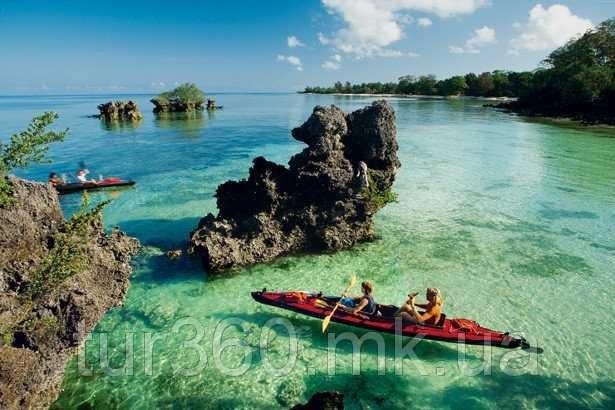Zanzibar

Zanzibar is the name of a group of islands belonging to Tanzania and its location in the Indian Ocean. These islands enjoy wide autonomy and the Zanzibar archipelago consists of the main islands: Bemba Island, Angua, Tumbato, Zanzibar, and Zirjan. The islands in the archipelago are called in the Swahili name Anguja, and the word Anguja is composed of two words: Angu: Mansaf means: came to mean fullness, as the name of the kingdom of the lost Arabs, is truly a paradise floating on earth.
Tourism in Zanzibar
The islands of Zanzibar are characterized by the delight of its picturesque scenery. In addition, it has more than four million carnations in large areas of the island.
Tourists coming to the island go to the countryside to stroll around and watch their beautiful orchards where fresh water flows. Zanzibar is known as the Turtle Island because of the abundance of turtles on its shores. Al-Jazeerah is also a safe area. Zanzibar is famous for spice and is also known as the Spice City. It is characterized by its extended palm trees on its shores.
In Zanzibar there are many historical sites of high historical importance, reflecting the island's ancient history. In Staunton there is an old historical museum that is open to the visitor after crossing a maze of winding alleys and historic streets, Where a visitor can walk for hours in those alleys and streets without feeling tired.
Zanzibar has many sports activities that attract tourists. These activities focus on swimming, swimming, diving, kayaking and windsurfing.
Climate of Zanzibar
The tropical climate of Zanzibar is moderate throughout the year to the island's proximity to the equator. The rainy season is called the Green Season, which starts in April and ends at the end of June.
brief history
During the reign of the Umayyad state, Islamic migrations towards the east of the African continent contributed to the entry of a large number of Zanzibar inhabitants into Islam. In the period of the Umayyad caliph Abdul Malik bin Marwan, Hajjaj ibn Yusuf al-Thaqafi attempted to annex Oman to the Umayyad state. This period was ruled by the brothers Saeed and Suleiman al-Jalandi, where the Chaldean brothers refrained from pilgrims. The latter sent a large army towards Amman, knowing that they would not be able to deter pilgrims, so they fled to their followers.
The migration of the two brothers to Zanzibar led to the consolidation of the Omani presence on the island and resulted in the rulers of the island and the islands belonging to it being followers of the rule of the Imams of Amman. The island continued until the reign of Sultan Said bin Sultan Al Busaidi, The Sultan established cultural ties there with Oman, which included Zanzibar

This user is on the @buildawhale blacklist for one or more of the following reasons: